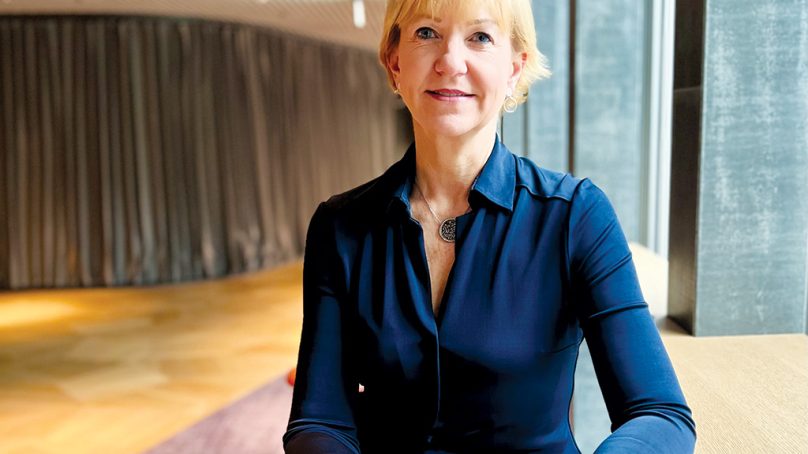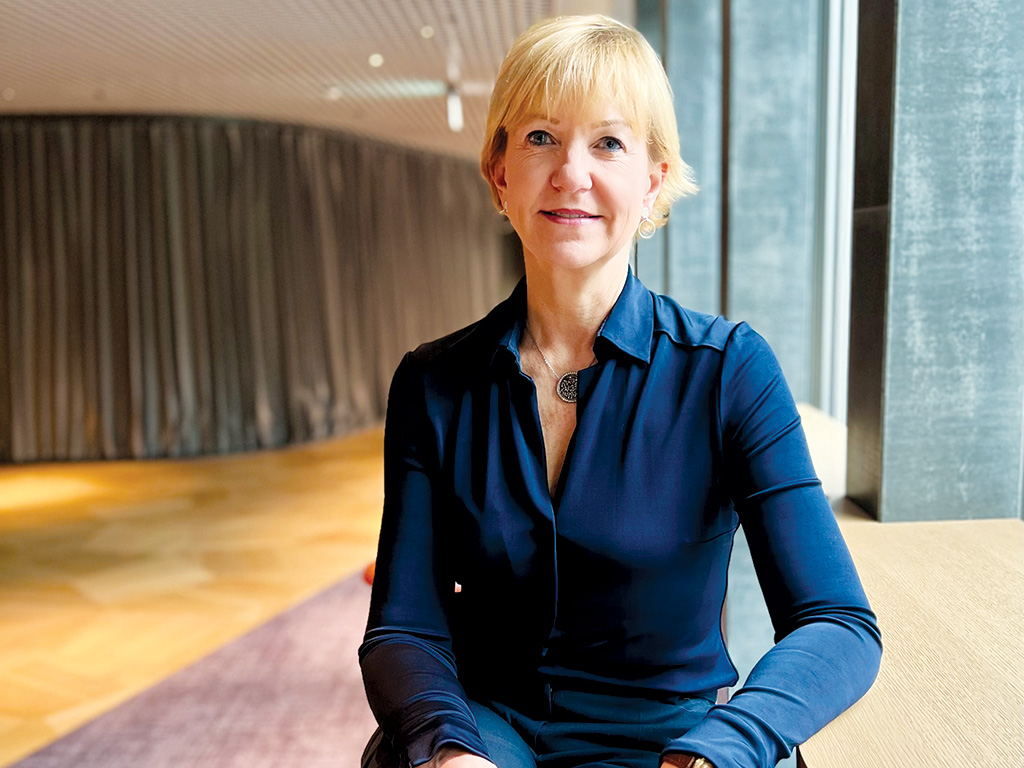Heidi Kunkel, senior VP of commercial services for EAME, discusses Hyatt’s Middle East expansion, driven by tourism growth and demand for luxury.
What is driving Hyatt’s expansion plans in the Middle East?
Hyatt’s expansion plans in the Middle East are primarily driven by the region’s growing economy and increasing tourism demands. Furthermore, rising demand for luxury accommodation is playing a critical role in shaping Hyatt’s strategy for regional growth. Additionally, the hospitality industry in the Middle East remains positive, bolstered by the region’s strategic location as a global hub. As a result, this unique positioning continues to signal promising growth opportunities for Hyatt and other hospitality leaders. Moreover, the region’s focus on hosting major events and conferences further drives the demand for premium hospitality services consistently.
What is the importance of the MICE offering for a hotel?
The positive trends we’ve seen in MICE enquiries across the region this year underscore the importance of the business travel sector.
In 2023, MICE requests at our Middle East properties increased by more than 16 percent compared to 2022, showing substantial growth. This upward trend continued into the first quarter of 2024, driven by evolving business travel preferences and the increasing demand for tailored experiences.
Traditionally, MICE-focused hotels were the go-to destinations for corporate events, but evolving travel trends have expanded this to include leisure properties. The rise in combining business and leisure travel has been a key driver behind the surge in business travel bookings post-COVID.
Hyatt is embracing these evolving preferences through its world-renowned brands for business travelers and its innovative meetings and events platform, Together by Hyatt.
Since its launch in 2021, Together by Hyatt has helped drive bookings to record highs, offering event organizers essential tools and support. These resources include wellbeing enhancements for a balanced experience, bespoke event guides, sustainability fact sheets and technology solutions to simplify event planning. Both business- and leisure-focused properties have an exciting opportunity to offer unique venues and experiences to MICE customers. As a result, their offerings will remain an essential part of their business strategies going forward.
Which Middle East market has the most potential?
Based on Hyatt’s 2023 results for the Europe, Africa, and Middle East (EAME) region, we saw a significant rise in airlift from the Middle East. Markets like Saudi Arabia and the UAE have remained in high demand for Middle Eastern tourism, driving substantial growth. Saudi Arabia’s tourism sector reached a major milestone in 2023 by welcoming 100 million visitors, achieving this goal seven years ahead of schedule. Meanwhile, Dubai International Airport saw a notable increase in passenger traffic, reaching nearly 87 million travelers, a 32 percent surge from the previous year.
Additionally, Dubai’s tourism sector broke records, welcoming over 17 million overnight visitors in 2023, surpassing previous highs.
Regionally, the Qatari market has shown strong growth, benefiting from the influx of World Cup-related supply and cultural events across the city. We also observed robust growth in our Abu Dhabi properties, largely driven by key conferences and summits held in the emirate, with continued positive performance in Dubai.
Following Hyatt’s resilient leisure demand, strong business transient, and group performance in the EAME region last quarter, we anticipate the hospitality landscape is set for further growth. The region’s potential for expansion remains promising, with key markets contributing to a bright future for Hyatt and the industry.
What can you tell us about Hyatt’s upcoming projects in the Middle East?
As for upcoming launches in the Middle East, Hyatt has several exciting projects in the pipeline. Grand Hyatt Dubai is set to debut as the first fully serviced five-star waterpark in the city center, just minutes away from Downtown Dubai and other iconic landmarks. This waterpark, available to both guests and visitors, aims to position Grand Hyatt Dubai as one of the most unique urban resorts globally, creating a destination within a destination. Additionally, Hyatt recently entered into management agreements with Knowledge Economic City (KEC) for Hyatt House Madinah KEC and Hyatt Centric Madinah KEC, which will add a combined 576 keys to its KSA pipeline.
Hyatt continues to expand in the region with upcoming luxury and leisure properties in Saudi Arabia, including Miraval The Red Sea and Grand Hyatt The Red Sea, reinforcing its commitment to the market. These developments highlight Hyatt’s dedication to meeting the evolving needs of travelers, further strengthening its presence in the Middle Eastern hospitality sector. As the region grows, Hyatt is well-positioned to offer unparalleled experiences for both leisure and business travelers alike.
















